|
Words Have Been Uttered Directed by Sunil Shanbag Written by Sunil Shanbag, Sapan Soren, Irawati Karnik @Prithvi on 31 Dec 2018 from 20-22hrs Today I finally got to watch first play directed by Sunil Shanbag at Prithvi - a late night show - before I retired into my room in Sun-n-Sand hotel after a hectic day. Multi linguistic, multi media, multi geographical ... multi faceted performance Two hours of power packed play - with 10 mins of break - takes the audience through a thought provoking journey with collection of narratives, poems, folk songs, and scientific dialogues. Sunil Shanbag, part of Tamasha theatre, introduces the play with a word that weaves and summarises the play - 'dissent'. He suggest dissenting, or having an opinion that is not mainstream idea, has been an integral part of society. A reason why so many social, political and cultural changes have emerged over so many generations. Dissent is an important part and a big reason for good democracy. The performance uses diverse audio-visual mediums such as powerpoint, live music and songs that would touch and move you. The long list of materials used in two hours (see photo below) includes a folk song Landays (see photo below) from Afghanistan sung by girls and women. Then, use of Bhakti poems translated in English, Hindi, humorous narration of Ismat Chughtai's narration of Lahore court case tried in early 1940s, and Galileo arguing with Copernicus .. the performance criss crossed across geographical areas, gender, communities and centuries with diverse language use - Punjabi, Afghani, Urdu, Hindi, English.. An excerpt from Marathi play Ambedkar viruddha Gandhi, Bob Dylan's The Times They are Changing, heartwarming satirical song/poem about the land eviction affecting adivasis/ tribals benefitting corporates, reading Dear Democracy and Jashn-e-Ghalib with emotions and beautiful voices of Priyanka Charan and Nachiket Devasthali were power packed reminder that dissent matters! Synopsis of Script - Sharing with the Audience At the end for the play rarely you'd see the director and artists distributing collection of performance - it was a surprisingly beautiful gesture to see dozens of photocopied book with some of the narratives from the play being distributed among audience. I'd upload five snapshots from the book (see above). Nothing can be as memorable as to see the hard work of the curators being shared with a wider audience! A highly recommended play - don't miss it and feel free to dissent but do 'listen' first. Creative Commons to the core and I love such work of artists :-)  Felix (Narcos/ Netflix), 7m tabby kitten, last month he changed my status to human slave .. wishes meow to all :-) Felix (Narcos/ Netflix), 7m tabby kitten, last month he changed my status to human slave .. wishes meow to all :-) Next play in January 2019 Next week i.e. January 9th 2019 I'll be watching another play, titled Deewar and written by Prithviraj Kapoor, is directed by Sunil Shanbag, which was premiered at the 40th anniversary of Prithvi festival. I missed most of the events due to my film screening events in Scandinavia. The only play I could catch during the festival was Jam by Harkaat studio, which I've reviewed here in Culture Call. I won't be reviewing Deewar - you can read this review here via The Telegraph's review.
0 Comments
Born and raised in Maharashtra, I consider Marathi as my maternal language! It is true that I can read, speak, understand and even write Marathi better than Bangla language. When I was in primary municipal school, in the outskirts of Mumbai, my teacher along with my mother had decided that instead of Malayalam as the third language it will be Marathi. I'd not seen a single play in Marathi till date. My brother, Prabir Bose, himself an expert of Theatre for Development, suggested (rather pushed) me to watch this play at NCPA, Mumbai. I am glad to listen and accept his advice. This play is running for over 40 years making it older than me! I think the actors are all new (not the ones who played 40 years ago) and some of the dialogues has nicely been adapted to suit the current scenario of the country. Satish Alekar's Mahanirvan is more than a story about death man.. it takes the audience more in-depth to examine human society, relationships and our behaviour with 'rituals and traditions' and underlying politics. Let me call it as a musical play in two acts with two key protagonists - sutradhars - the dead man and his son. Satish Alekar beautifully uses typical Maharashtrian regional folk songs and music such as Abhang, Bhajan, and Kirtans through out the 120 minutes. The interval/break in the play sees the shift of 'sutradhar' from dead man to his son. Of 15 men in the play there is only one woman - the widow - and her role is nicely placed from being dependent, to vulnerable, and to some one with desire. Alekar direction has left no gap in depicting the chawl atmosphere, or brining sarcasm in our belief-systems - be it in the form of black crow that claims monopoly in traditional ritual systems of death .. questioning what is culturally acceptable or prescribed and followed/passed-on blindly. I must admit Nachiket Devasthali's acting got me floored. Each and every character is well-placed and audience is given a chance to understand the character - its relevance in the play/story. To me, the story is well executed and sometimes I found Marathi language was a bit too polished for me to understand, but that was only in a couple of dialogues. Overall, I would highly recommend to watch this play if you get a chance. Absolutely brilliant performance by the actors. The Hindu has published a detailed review of this play, which you can read it here
https://www.thehindu.com/entertainment/theatre/mahanirvan-revival-and-relevance-today/article23321806.ece |
Privacy Policy: We use Google Analytics to collect data to improve the Website. By using and accessing the website you are consenting to use of Google Analytics. All Rights Reserved.
ARchIvES
March 2019
CATEGORIES
All
Privacy Policy: This website uses Google Analytics to improve the Website. By using and accessing the website you are consenting to use of Google Analytics.
|
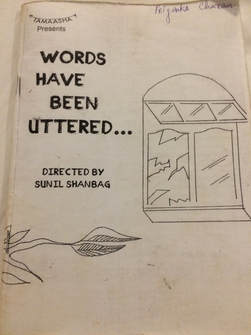
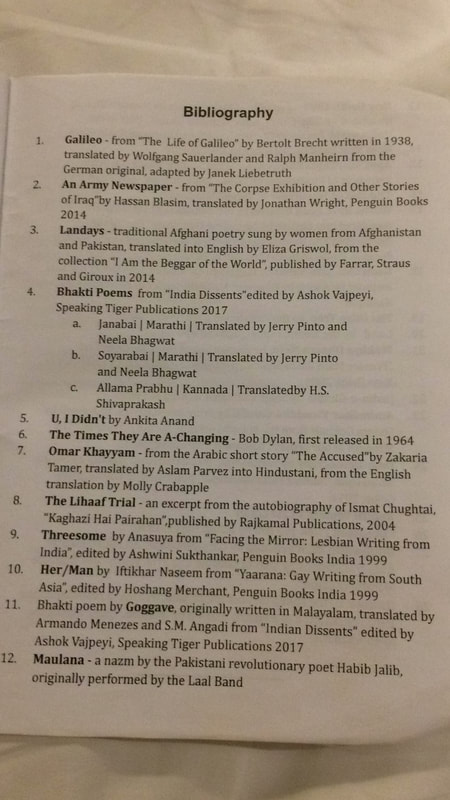
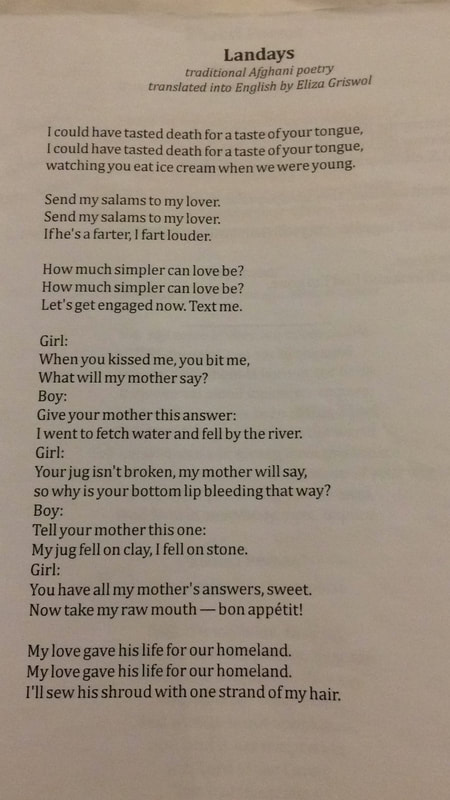
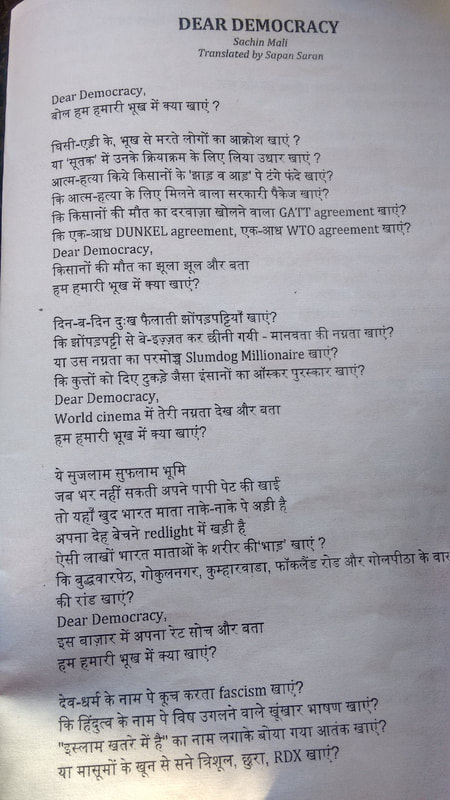
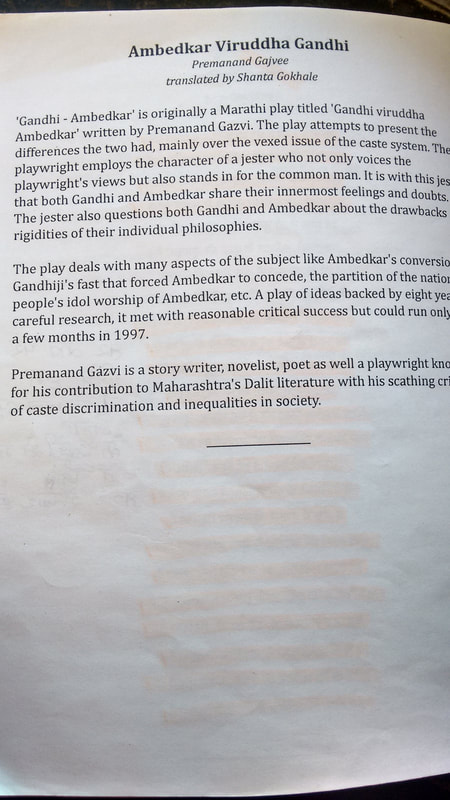
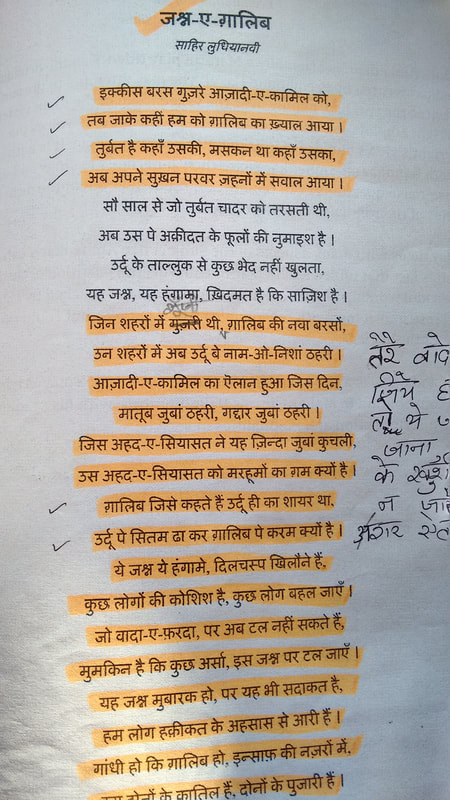
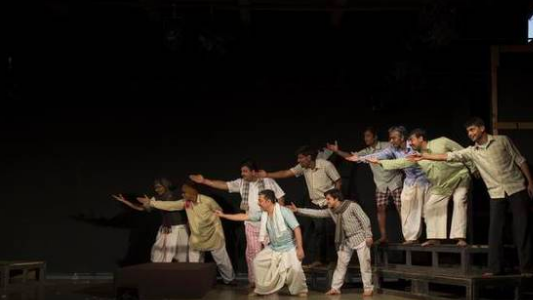
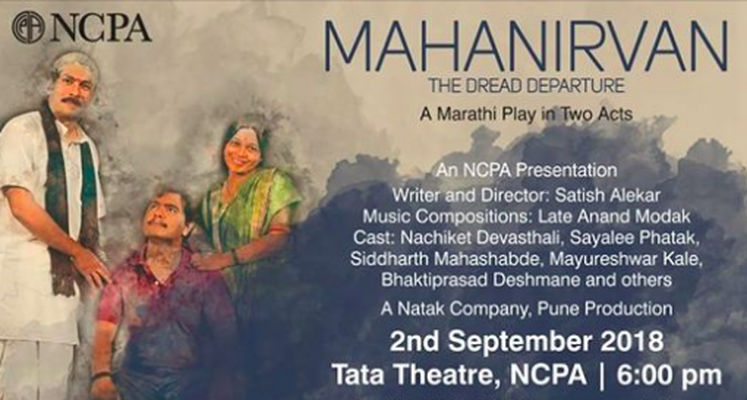
 RSS Feed
RSS Feed
